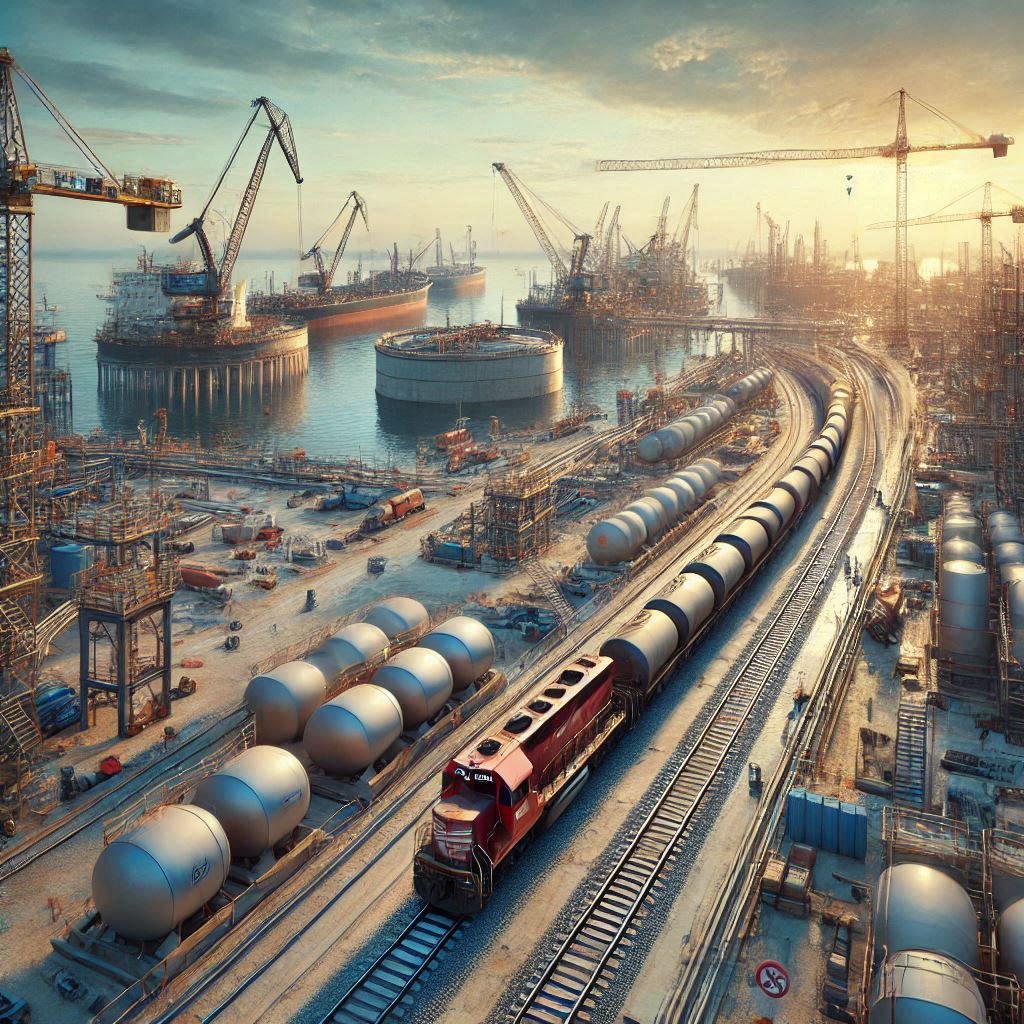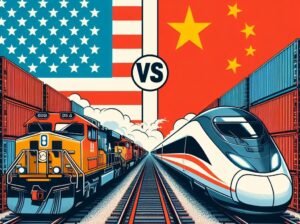By
Marcos Kleber Ribeiro Felix
The Greatest Advantage of Private Railway Authorizations is Solving Overlooked Bottlenecks
In September 2021, during the launch of the ProTrilhos program at Brazil’s presidential palace, then-Minister of Infrastructure Tarcísio Gomes de Freitas posed a provocative question:
“How many rail branches could emerge to connect key production hubs to port zones? How many shortline branches could link production areas to existing concessionary railways?”
Unlike the United States, which boasts over 600 independent railway companies operating more than 160,000 km of active tracks, Brazil, until 2021, had only seven railway concessionaires managing just 12,000 km of fully operational lines.
Few could have anticipated the answer to Freitas’ question: more than 100 requests for new railway projects in less than two years. This overwhelming market enthusiasm stems from an unprecedented opportunity—to bridge the gap between Brazil’s growing demand for transport infrastructure (estimated at $116.7 billion by the National Confederation of Transport, or CNT) and a stagnating rail network. Once a robust system of approximately 30,000 km in the 1920s, the network now operates only 12,000 km at full capacity.
Since the introduction of private railway authorizations in 2021 under Provisional Measure No. 1,065, Brazil’s National Land Transport Agency (ANTT) has received 108 requests for new private railway infrastructure from 52 different entities. Of these, 72 requests remain active, and 45 contracts have already been executed.
Private investments in these projects are projected to reach $40.2 billion, adding approximately 12,000 kilometers of new rail lines.
The Alemoa Railway: A Case Study of Private Initiative at the Port of Santos
Among these projects, three stand out for their potential to transform Brazil’s logistics landscape: the construction of three short railway lines, each less than 3 km long, in the Alemoa industrial complex at the Port of Santos, Latin America’s largest port. Led by Ultracargo, Granel Química, and Vopak, these railways aim to revolutionize the movement of liquid fuels in Brazil.
The Port of Santos handles about 160 million tons of cargo annually, including 16 million tons of liquid fuels. Today, most of this cargo is transported by trucks, leading to higher logistics costs, congestion, and inefficiencies.
The “Invisible Hand” of Brazil’s New Railway Law
Under the previous centralized planning model, the Alemoa fuel bottleneck was overlooked, even as concessions for major rail operators like Rumo and MRS were renewed and the Internal Port Railway of Santos (FIPS) was established.
Why were 10% of Santos’ cargoes neglected? Centralized planning often prioritizes high-visibility issues, while incumbent concessionaires focus on more lucrative investments, such as steel, industrial, or agricultural cargo.
For Ultracargo, Vopak, and Granel Química, however, a $30.8 million investment offers a compelling solution. The new rail infrastructure will shift cargo from costly, polluting road transport to efficient, sustainable railways. This shift is expected to enhance the flow of diesel and gasoline to the hinterlands and bring ethanol back to the port, improving inventory turnover at terminals across Santos-SP, Paulínia-SP, Santa Helena-GO, and Rondonópolis-MT.
Directly connecting the Alemoa terminals with the national rail networks operated by Rumo, VLI, and MRS, the project is poised to deliver broad economic and logistical benefits.
A New Era of Decentralized Solutions
This project owes its viability to Brazil’s New Railway Law (Law No. 14,273 of 2021), which allows private companies to construct and operate railways under a flexible authorization model. Until 2021, for nearly 70 years, only the federal government could initiate railway projects.
This regulatory shift, reducing bureaucracy and fostering private-sector investment, has enabled the first private rail project at Santos in nearly a century. The collaboration among Ultracargo, Granel Química, and Vopak exemplifies how private initiatives can lead transformative logistics solutions.
Strategic Cooperation: Lessons from Game Theory
Unlike the frequent disputes over rail corridors—such as Rumo against VLI and MRS against Cedro—the Alemoa project showcases a spirit of alliance. The three companies have chosen collaboration over competition, sharing costs and infrastructure to maximize mutual benefits. This strategy not only mitigates risks but also enhances the project’s overall viability.
Local government support has further bolstered the initiative. Unlike federal criticism of previous rail solutions, the City of Santos has embraced the Alemoa project wholeheartedly. On April 29, 2024, Mayor Rogério Santos enacted Municipal Law No. 4,468, facilitating the land required for railway construction in exchange for social projects, including a pediatric hospital and sports facilities, valued at $14.2 million.
A Promising Future for Private Railways in Brazil
The Alemoa railway is just the beginning of a quiet railway revolution in Brazil. The New Railway Law is already inspiring similar projects across the country, including Rumo’s rail expansion in Mato Grosso, Eldorado’s rail ventures in Mato Grosso do Sul, Petrocity’s rail projects in Minas Gerais, Espírito Santo, and Brasília, and GrãoPará’s rail link between São Luís and Açailândia. Not to mention ambitious intercity rail initiatives like Otmza Labs’ Brasília-Luziânia route, Sultrens’ Gramado-Porto Alegre connection, and TAV Brasil’s São Paulo-Rio de Janeiro high-speed rail.
This expansion of private railways promises to reshape Brazil’s logistics and mobility, fostering regional development and sustainability. By integrating these new lines with existing networks, Brazil can achieve a more balanced transport matrix, reducing its heavy reliance on costly, environmentally damaging road transport.
Moreover, amid a fiscal crisis limiting public investment in infrastructure, this new framework offers a path to more efficient and sustainable railway solutions through private investment.
Set to begin operations in 2027, the Alemoa railway exemplifies how private investment, modern regulation, and social responsibility can address Brazil’s pressing challenges. Expected benefits include cost reductions, eased congestion, improved logistics efficiency, and positive social impacts. More than a logistical milestone, the Alemoa railway symbolizes a more competitive and sustainable future for Brazil.



